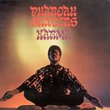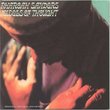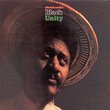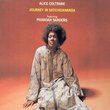| All Artists: Pharoah Sanders Title: Tauhid Members Wishing: 0 Total Copies: 0 Label: Universal Original Release Date: 1/1/2007 Re-Release Date: 8/6/2007 Album Type: Import Genre: Jazz Styles: Avant Garde & Free Jazz, Bebop Number of Discs: 1 SwapaCD Credits: 1 |
Search - Pharoah Sanders :: Tauhid
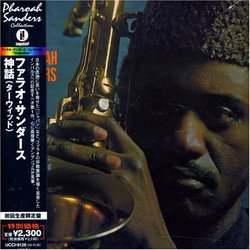 | Pharoah Sanders Tauhid Genre: Jazz
Limited Edition Japanese pressing of this album comes housed in a miniature LP sleeve. 2007. |
Larger Image |
CD DetailsSynopsis
Album Description Limited Edition Japanese pressing of this album comes housed in a miniature LP sleeve. 2007. Similar CDs
|
CD ReviewsA different side of Coltrane-era Pharoah A. Benjamin | Goodwell, OK United States | 11/08/2001 (5 out of 5 stars) "In late 1966, Pharoah Sanders was still a sideman in Coltrane's final quintet and had made his reputation for his wild and aggressive playing style. This early solo date shows the peaceful, meditative side to Pharoah's music -- a side that he would explore more in-depth after 'Trane's death. The focus of the first track (Upper Egypt & Lower Egypt) is on the rhythm section which provides a haunting soundscape that calls to our deepest ancestral roots as well as the present, and provides a beautiful canvas upon which Pharoah periodically provides some gently lilting flute and piccolo solos -- along with some very melodic sax work. The second piece (Japan) has the feel of an Asian folk melody. The third piece (Aum/Venus/Capricorn Rising) presents more of the fierceness that we Pharoah Sanders fans have grown to know and love, and passages point the way to his later sonic triumphs (e.g., "The Creator Has a Master Plan"). The late guitarist Sonny Sharrock is a treat to hear on this album.Personally I consider any of his work from the late 1960s and early 1970s to be worth checking out. Tauhid is a good starting point to explore this important creative artist during an era where he was arguably at a creative peak. Unlike some of his subsequent albums, this ain't gonna tear the roof off the sucker, but it makes for some wonderful chill-out music for late at night." Very Important Work Connecticut Rooster | Danbury, CT USA | 02/01/2000 (5 out of 5 stars) "This album is where I first became familiar with Pharoah's work-besides Coltrane's Ascension. This is important stuff because it is an excellent departure in the spiritualist merge of three different civilizations: Occident, Orient, and African. All are intertwined within the genre of jazz. This is a movement that can be located in the works of other folks who played with Coltrane such as his wife. The music is a powerful statement." Pharoah's first strong effort. Michael Stack | North Chelmsford, MA USA | 10/12/2005 (4 out of 5 stars) "In November of 1966, Pharoah Sanders was at the center of the burgeoning "New Thing"s scene-- blowing tenor next to the godfather of that music, John Coltrane and having just completed his first studio session with trumpeter Don Cherry, Sanders entered the studio for the second time to record an album, this time for Impulse Records. "Tauhid" was the result of that sessions.
Assembling a band of then-unknown guitarist Sonny Sharrock, pianist Dave Burrell, bassist Henry Grimes, drummer Roger Blank and percussionist Nat Bettis, Sanders recorded two lengthy suites (each around 15 minutes) and one brief piece. Both the influence of Coltrane and Cherry can be heard, and while Sanders' vision is not yet fully realized, the path to the future is clear. "Upper Egypt & Lower Egypt", the suite on the first side, clearly shows the influence of Don Cherry. The first section is a building, bubbling theme, driven by swelling guitar before dropping into an arco bass solo and eventually a piccolo performance (from Sanders) over percussion. This folds into the closing section-- a fantastic, guitar and piano driven riff over which Sanders solos fiercely-- utilizing his overblowing technique to gain the most of his expressiveness before wordlessly singing the theme. "Japan", a brief interlude, finds Sanders vocalising microtonally over an Eastern-tinged theme. It certainly works nicely enough and has the wisdom to end before it gets irritating. The closing suite-- three pieces performed in medley, is frantic and explosive-- "Aum" finds Sanders railing away frantically on alto before switching to tenor for the more meditative "Venus", where Sanders growls his theme before the piece moves into a totally free improv with Sanders, Sharrock and Blank all wailing around Burrell's framework. A rather nonlinear pizzicato bass solo moves into the third movement-- "Capricorn Rising"-- a brief theme statement on tenor that finds itself equally meditative. A final note-- this album seriously needs remastering-- the sound on this release sounds seriously dated. But this flaw aside, this is a fine, if somewhat derivative outing from Sanders." |

 Track Listings (3) - Disc #1
Track Listings (3) - Disc #1